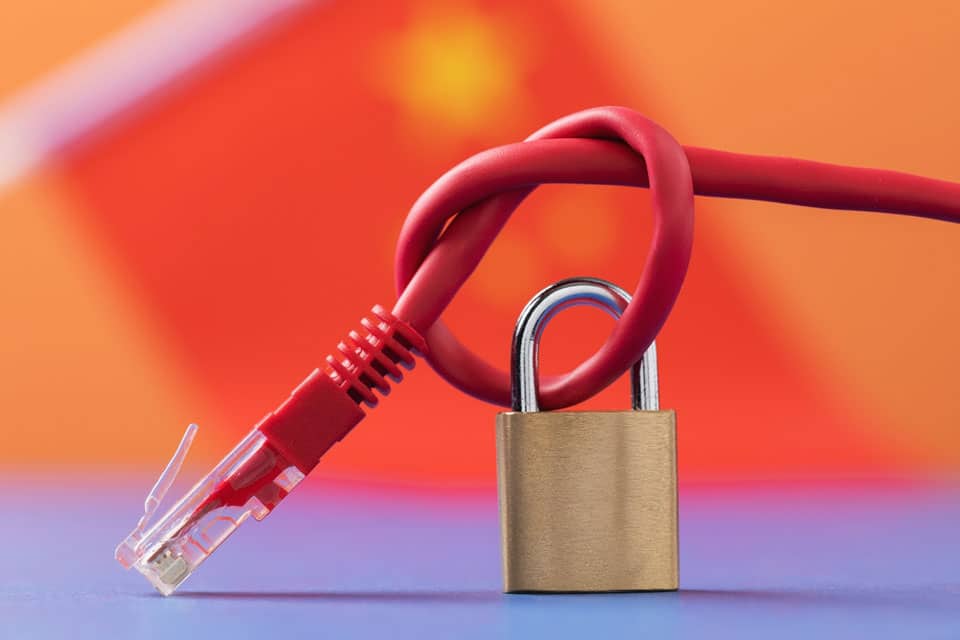Report: Top 20 worst countries for internet freedom, 2023

The internet has become necessary in the modern digital world, pervasive in our everyday routines. Internet access is now considered a fundamental requirement in most countries, with over 63% of the global population, exceeding 5 billion people, having the ability to connect to the online world. However, this access is far from uniform across the globe. In 2023, some nations boast internet penetration rates of at least 90%, while others struggle to reach even 25%.
Yet, having internet access doesn’t necessarily equate to enjoying free and unrestricted access. This disparity is particularly pronounced in countries where authoritarian regimes govern. These governments often impose severe censorship measures to control the flow of information, especially when it threatens their rule. While they may cite combating misinformation as a reason, the actual motivations are often more sinister. Consequently, global internet freedom is on a concerning decline.
China stands out as a prime example of a nation with strict internet censorship, which impacts the growth of major social media companies. Platforms like Facebook, Instagram, Snapchat, and Google’s YouTube are all banned in China. Although Facebook once operated in the country, it was banned in 2009 after the Urumqi riots, when the Chinese government alleged that activists used the platform to coordinate their actions. While this has cost these social media giants access to the world’s largest market, they still generate substantial revenue by selling ad space to Chinese entities. In 2018, Facebook earned between $5 to $7 billion from Chinese advertisers, accounting for nearly 10% of its total revenue.
On the other hand, there’s a distinction between countries that heavily censor content and those striving to combat misinformation, a significant global concern. The issue gained prominence following the 2016 elections when Facebook faced criticism for not doing enough to prevent the spread of misinformation, which was believed to have influenced the election outcome. To address this, Facebook made algorithm changes and hired additional content reviewers, which increased costs and reduced margins.
Similarly, Google adjusted its algorithm to prioritize relevant and high-quality content, but it was accused of favoring larger websites, affecting smaller ones’ revenue and the overall quality of search results. This shift provided an opportunity for other search engines, like Bing, which has partnered with Microsoft Corporation (NASDAQ: MSFT). Microsoft’s Q2 2023 earnings report highlighted Bing’s growing user base, driven in part by pairing it with ChatGPT, a technology that holds the potential to revolutionize the search engine industry by offering high-quality, relevant information, potentially challenging Google’s dominance.
Top Countries Who Ban Social Media and Censor the Internet
Here stands the information about countries that censor the internet and block social media, along with their respective internet freedom scores. The list is in ascending order:
- China: China tops the list with stringent internet censorship, banning major global social media apps. WeChat, a Chinese platform, has over a billion users, while other global social media companies miss out on this lucrative market.
- Iran: Iran frequently cuts internet connections and consistently blocks major social media apps. Sanctions were imposed on an Iranian company involved in internet censorship.
- Myanmar: Censorship increased in Myanmar following a military coup in 2021, leading to internet blackouts and social media blockades.
- Russia: Russia heavily censors social media and maintains an internet blocklist, contributing to the prevalence of propaganda.
- Saudi Arabia: The Saudi government heavily censors the internet and closely monitors online activity.
- Vietnam: Vietnam imposes restrictions on internet content, although it has eased throttling of Facebook servers. Harsh penalties apply to unauthorized online expression.
- Bahrain: Despite high internet penetration, Bahrain engages in content censorship and strict monitoring of social media.
- Cuba: Cuba faces internet restrictions from its own government and U.S. sanctions, limiting access to various platforms and websites.
- Egypt: Internet censorship increased in Egypt under the El-Sisi regime, accompanied by surveillance and harsh penalties.
- United Arab Emirates: While the UAE offers high-speed internet, social media apps like WhatsApp are banned, and pornography websites are blocked.
- Belarus: Belarus censors the internet and requires media outlets to register with the government, leading many independent publications to use foreign-based internet domains.
- Kazakhstan: Kazakhstan has a history of blocking internet access for the entire country to control civil unrest.
- Pakistan: The Pakistani government and military contribute to internet censorship, with YouTube being blocked for several years after an anti-Islam film controversy.
- Uzbekistan: While internet restrictions are easing somewhat, more work is needed to improve internet freedom in Uzbekistan.
- Ethiopia: Ethiopia faced criticism when select social media sites were banned for over a month in March 2023 following tensions in the Orthodox Church.
- Turkey: Turkey’s internet freedom is declining due to the enforcement of the 2020 Social Media Law, resulting in content removal and criminal charges for social media posts.
- Sudan: Internet restrictions in Sudan worsened after the 2021 coup, with nationwide limitations imposed during anti-coup protests.
- Venezuela: Harsh laws in Venezuela lead to self-censorship by citizens, while increasing authoritarian behavior from the government continues to curtail internet freedom.
- Thailand: Thailand’s internet censorship initially targeted pornography but has expanded over the past 15 years, resulting in the blocking of tens of thousands of websites.
- Rwanda: Rwanda’s government has imposed internet restrictions, but authoritarian measures such as requiring YouTube channels to register have been temporarily abandoned.
Methodology: To identify countries with internet censorship and social media bans, we relied on data from Freedom House, considering criteria such as government interference in internet access and national regulatory authority involvement. We ranked each country based on its performance across these criteria and calculated an overall score to determine the extent of internet freedom, with higher scores indicating more significant censorship.
These countries vary in their levels of internet freedom, with some imposing severe restrictions and censorship, impacting access to information and communication for their citizens.
The landscape of internet freedom remains diverse and complex across the globe. While some countries strive to provide open and unrestricted access to the internet, others impose severe censorship and restrictions, significantly limiting the flow of information and freedom of expression for their populations. The extent of these measures varies, with China leading the list as the most stringent enforcer of internet censorship, while other nations also grapple with challenges related to internet freedom. As the digital age continues to evolve, the balance between internet accessibility and control remains a critical issue on the global stage.
Have you read?
Largest Hotel Chains in the World.
Best Residence by Investment Programs.
International Financial Centres Ranking.
Best Citizenship by Investment (CBI).
Most Valuable Unicorns in The World.
Add CEOWORLD magazine to your Google News feed.
Follow CEOWORLD magazine headlines on: Google News, LinkedIn, Twitter, and Facebook.
Copyright 2024 The CEOWORLD magazine. All rights reserved. This material (and any extract from it) must not be copied, redistributed or placed on any website, without CEOWORLD magazine' prior written consent. For media queries, please contact: info@ceoworld.biz








